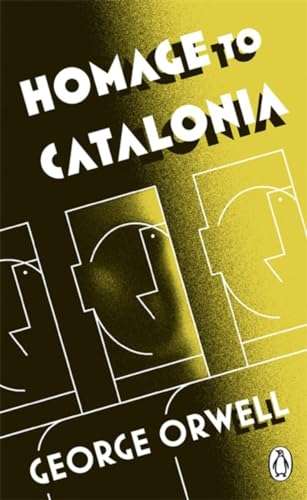
Homage to Catalonia - George Orwell (Penguin Modern Classics)
Check my rate
| Main centres: | 1-3 business days |
| Regional areas: | 3-4 business days |
| Remote areas: | 3-5 business days |

| Main centres: | 1-3 business days |
| Regional areas: | 3-4 business days |
| Remote areas: | 3-5 business days |
Published by Penguin Classic, 2013, softcover, 250 pages, condition: very good.
'Every line of serious work that I have written since 1936 has been written, directly or indirectly, against totalitarianism and for democratic Socialism as I understand it'. Thus wrote Orwell following his experiences as a militiaman in the Spanish Civil War, chronicled in Homage to Catalonia. Here he brings to bear all the force of his humanity, passion and clarity, describing with bitter intensity the bright hopes and cynical betrayals of that chaotic episode: the revolutionary euphoria of Barcelona, the courage of ordinary Spanish men and women he fought alongside, the terror and confusion of the front, his near-fatal bullet wound and the vicious treachery of his supposed allies.
Eric Arthur Blair (1903-1950), better known by his pen-name, George Orwell, was born in India, where his father worked for the Civil Service. An author and journalist, Orwell was one of the most prominent and influential figures in twentieth-century literature. His unique political allegory Animal Farm was published in 1945, and it was this novel, together with the dystopia of Nineteen Eighty-Four (1949), which brought him world-wide fame. All his novels and non-fiction, including Burmese Days (1934), Down and Out in Paris and London (1933), The Road to Wigan Pier (1937) and Homage to Catalonia (1938) are published in Penguin Modern Classics.
"I wonder what is the appropriate first action when you come from a country at war and set foot on peaceful soil. Mine was to rush to the tobacco-kiosk and buy as many cigars and cigarettes as I could stuff into my pockets." Most war correspondents observe wars and then tell stories about the battles, the soldiers and the civilians. George Orwell--novelist, journalist, sometime socialist--actually traded his press pass for a uniform and fought against Franco's Fascists in the Spanish Civil War during 1936 and 1937. He put his politics and his formidable conscience to the toughest tests during those days in the trenches in the Catalan section of Spain. Then, after nearly getting killed, he went back to England and wrote a gripping account of his experiences, as well as a complex analysis of the political machinations that led to the defeat of the socialist Republicans and the victory of the Fascists.